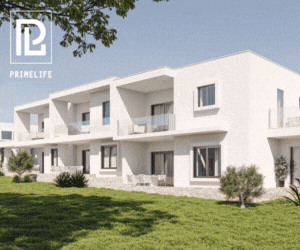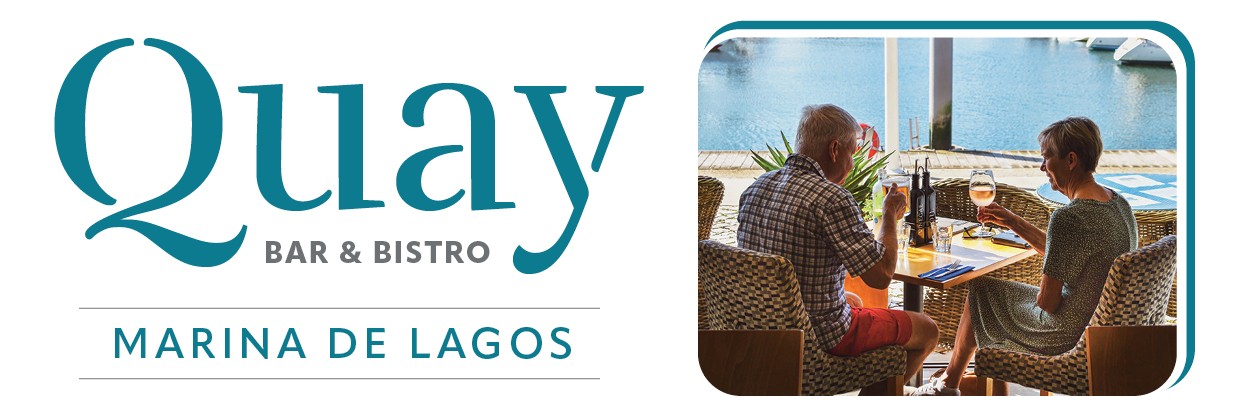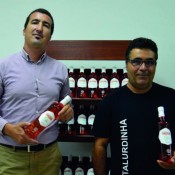
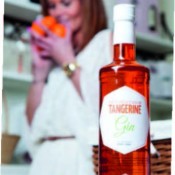
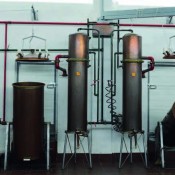
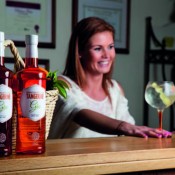
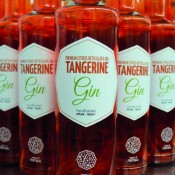
Introducing the only gin made in the Algarve, by Algarveans
There is no drink quite as fashionable as gin right now.
A Dutch invention that’s quintessentially English at heart, the spirit once associated to middle-aged, middle-class drinkers in the form of the classic gin & tonic has exploded to become Portugal’s drink du jour.
In the last couple of years, gin bars have been popping up across the country, with an increasing number of gin experts serving carefully prepared concoctions in balloon glasses to various generations of Portuguese and international drinkers alike. But “the perfect serve” is more than a fleeting trend and Portuguese businesses have taken notice. Today, there are a number of gins produced here in Portugal, but only one of them is made right here in the Algarve with products that best represent the region: Tangerine Gin.
Presented in a distinctive orange bottle bearing the words ‘Premium Citrus Reticulata Gin’, Tangerine Gin is the result of two years of development, the brainchild of Portimão native Eduardo Peixinho Reis. It was when he joined forces with local producer Luís Sequeira, the man behind the Talurdinha aguardente firewaters and liqueurs in the village that has been distilling as far back as 1747, that the Algarve’s first and only gin was born.
It’s in a distillery between Lagoa and Silves that Luís Sequeira produces this citrusy gin, first launched in late 2014. London dry in style, it is triple distilled in copper steam boilers, with nine different dehydrated botanicals added to the spirit: juniper, tangerine, orange, lemon, almond, black pepper
(the only botanical not from Portugal), liquorice, angelica and coriander seed. Still in its early days as a gin-maker, the distillery can produce 30,000 litres, a figure that can increase depending on market demands.
“The gin trend isn’t a global thing, but it has become huge in some countries including Portugal, so producing a gin was inevitable,” explains Eduardo, a food engineer who also teaches at the Hospitality School in Portimão. “We had to set it apart from London gin; we can’t compete with all the English gins so we had to create a different product that also promotes the Algarve and its own products. From the start, the idea was to produce an aromatic product with a different look.”
With 42% alcohol, the gin is extraordinarily versatile, according to the producers, and there are many debates as to the best way to serve it. Eduardo recommends serving it with tonic and a slice of orange – or just the zest if it’s sweet enough – or freshly squeezed orange juice (“using Silves oranges, of course!”), coriander, lemon or basil. “It can also be drunk straight as it’s very easy to drink, and it’s amazing in cocktails,” adds the Algarvean.
Speaking from the distillery’s tasting room, which is open to visitors, the team explains: “We have two big advantages here. First, that our distilling tradition dates back to the 18th century – in fact the Algarve is the region that has been distilling the longest, a tradition that comes from the Moors –, and second, our microclimate and temperature, which gives us everything, aromatic plants and other ingredients.” They note, however, that the Algarve has one handicap when it comes to gin production: it doesn’t have juniper, which only grows at high altitudes. To produce Tangerine Gin, the junipers are brought in from the Serra da Estrela mountain range.
Bearing the stamp ‘Product of Portugal’, which reflects Eduardo’s belief that we should promote the country and the Algarve through its unique products and experiences, the gin was also created in collaboration with some of the region’s beverage professionals, whose feedback helped perfect the final recipe. “Their input is in the genesis of the product today, they all left their stamp. So you could say it really is a product of the Algarve through and through.”
As well as in bars and restaurants, Tangerine Gin is available at supermarkets and wine shops across the Algarve, including Intermarché in Carvoeiro and Rei das Praias Boutique in Ferragudo (RRP around €25).

